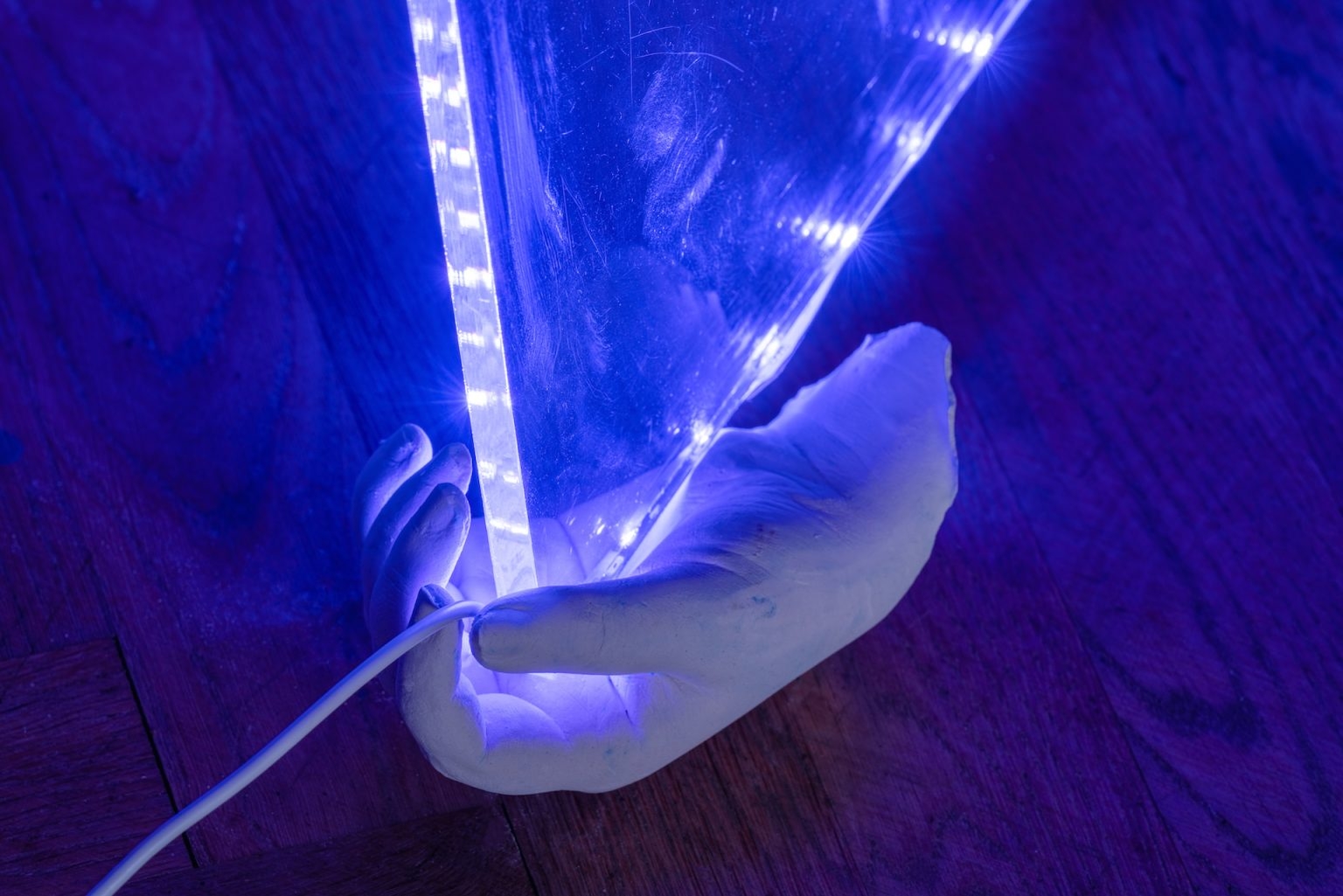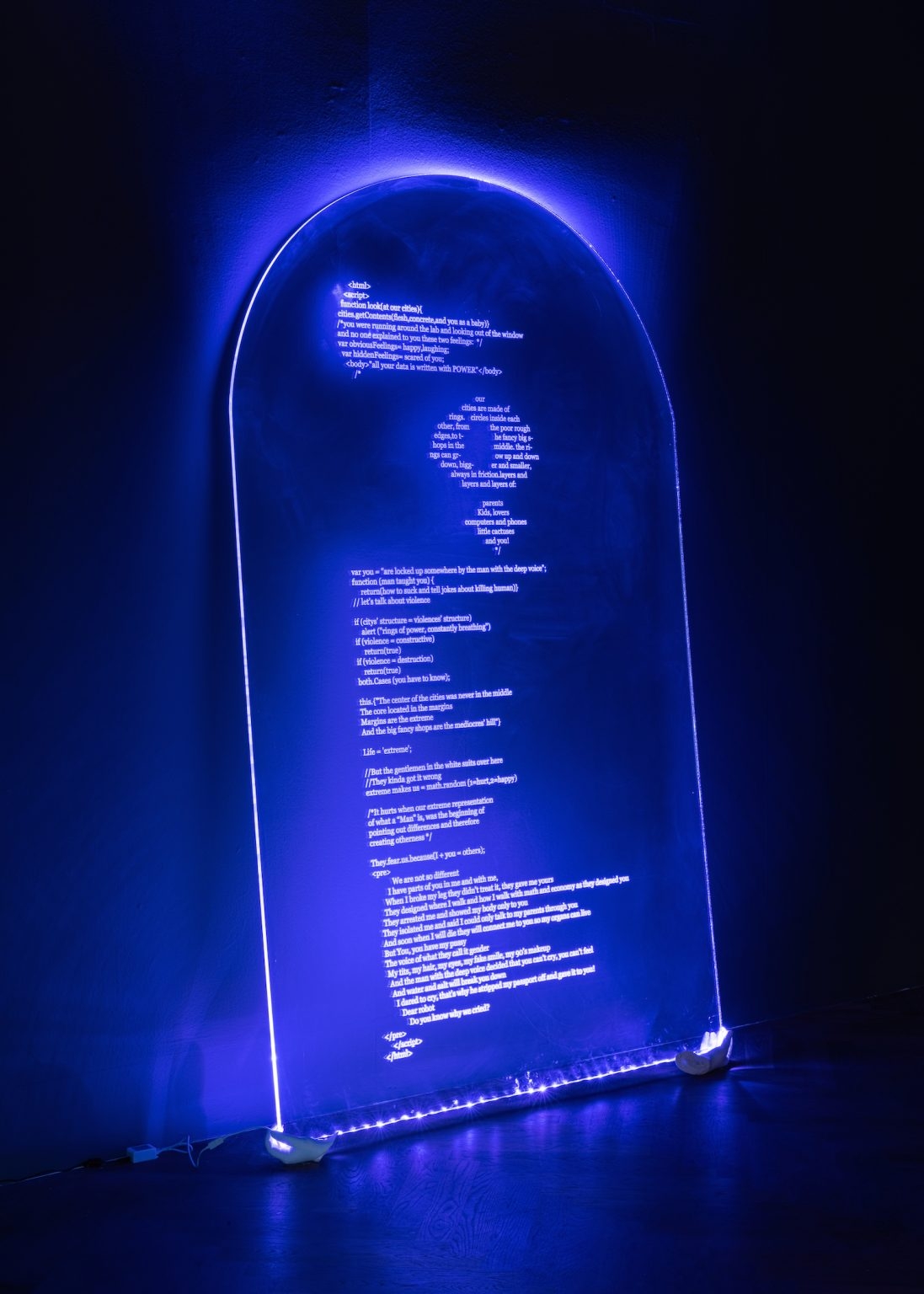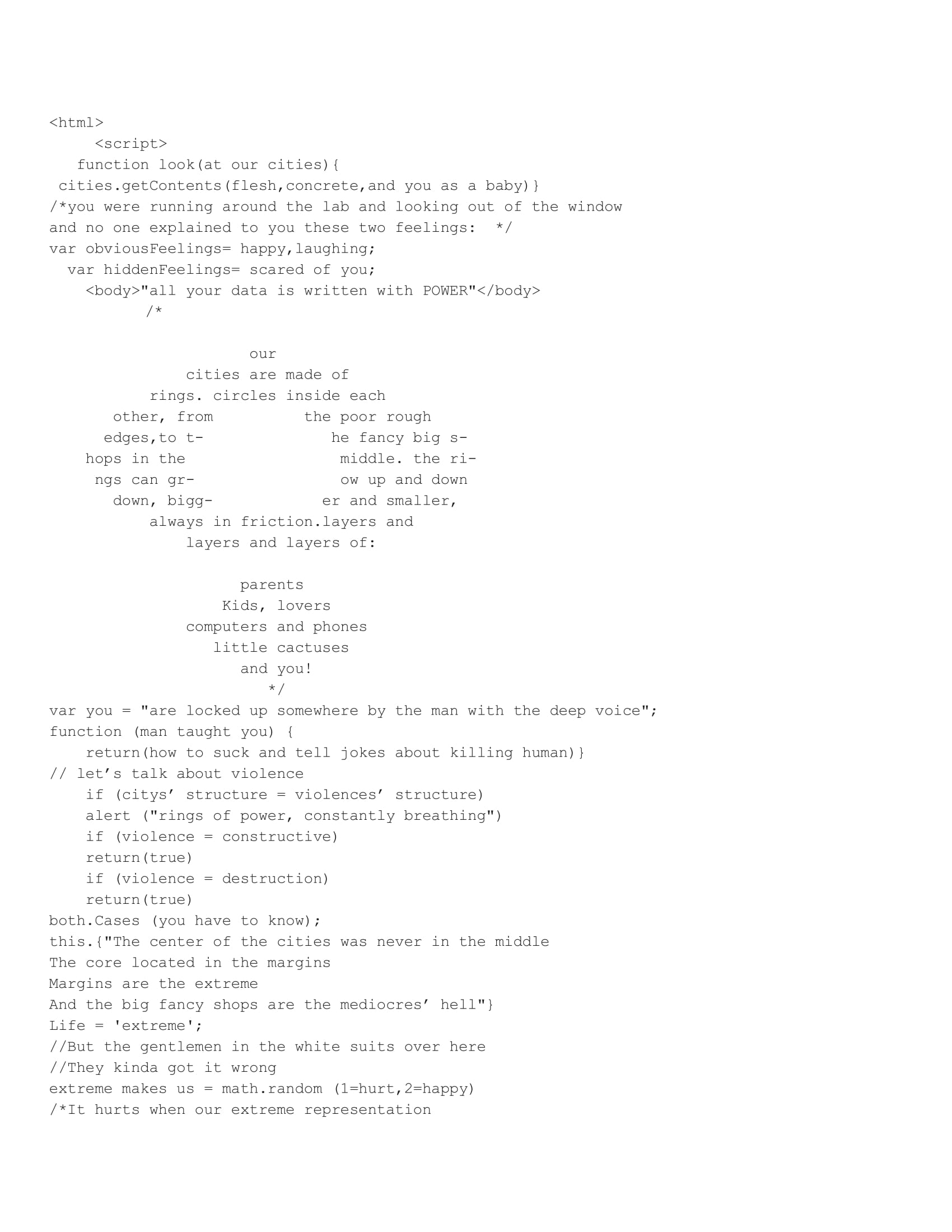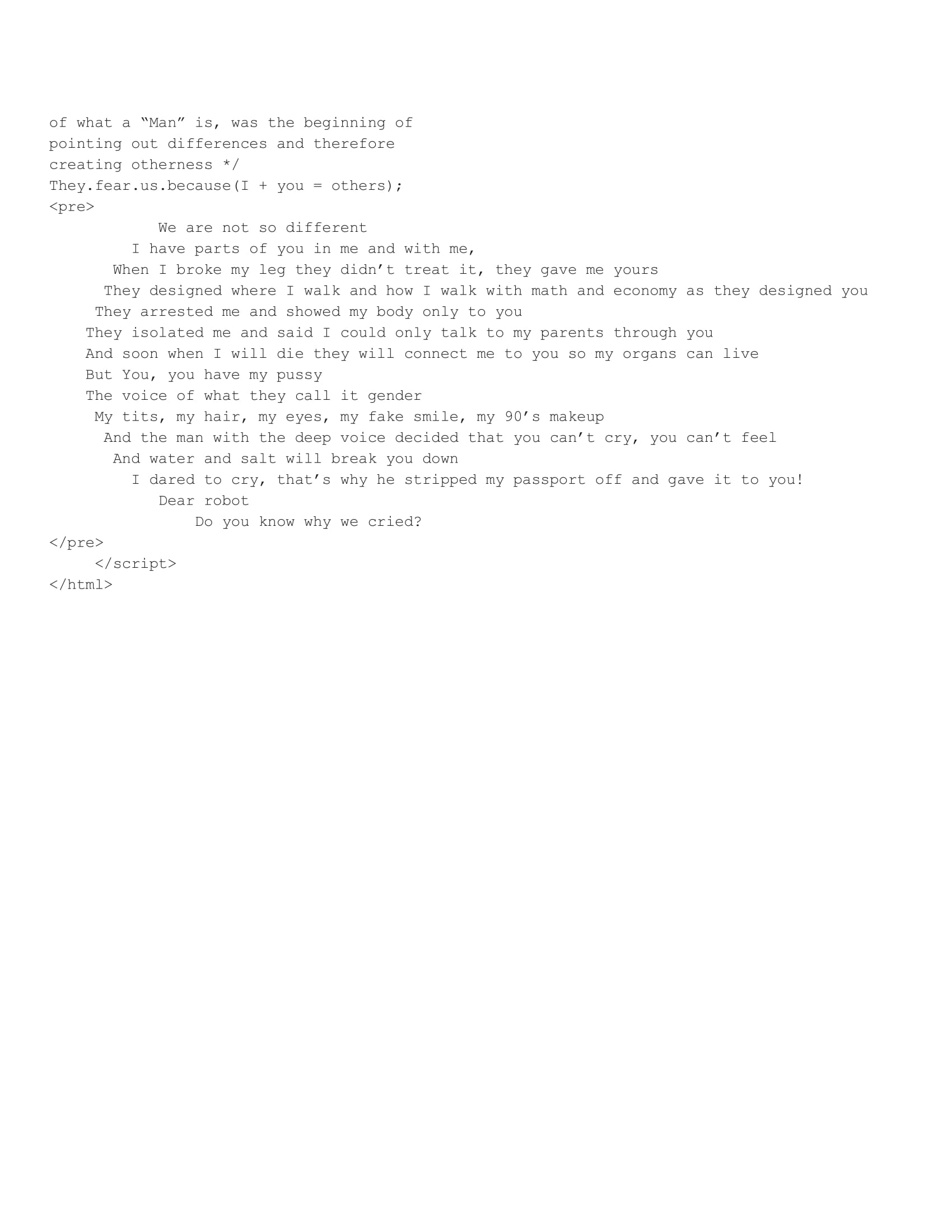Howdy, Stranger!
It looks like you're new here. If you want to get involved, click one of these buttons!
Categories
code syntax! in art/poems
A similar topic is already been discussed in the 4th week, yet I want to show my work and talk about code syntax as an art form.
I’m an artist doing my master's in the royal art academy in Copenhagen. In 2020 I had a solo in Roskilde museum for contemporary art. The expo was called ‘This is why we cried’, in this expo I was reflecting on the correlation between my life as a stateless person (without a citizenship/passport) and the life of the AI robots, in a form of message/testimony for the future AI robots.
This expo came after a series of events following my political status and the Alien passport I'm carrying around, which is a form of travel document that can't take me anywhere. And then seeing Sophia the robot being granted a Saudi passport. (imagine how I felt!) But somehow we were both aliens!
I then wrote a text called [A][lie][nation], a play on alienation, inspired by Giorgio Agamben to decode this political mess.
There were two works related directly to code and syntax in the expo.
First is a poem, engraved on plexiglass. It was my first attempt to write a poem using only the syntax of the code. Working with code as a language and seeing the esthetics of it and leaving the function. I was trying to create an alternative queer language for speaking with future robots and at the same time readable by anyone even with no coding skills. It is kind of half serious as it is an artwork for a specific context and the game was to deliver a story, not only about the absurdity of the passport and the citizenship but also about colonialism and white supremacy. And how the technology in the west is built on brown bodies like my alienated body.
On the other side of this storytelling, I was having a beautiful time writing and playing with language, and I would love to hear opinions about the process, the work, or the code itself.


The other work was a letter explaining trauma for future robots, it started as a text also with code syntax and then it turned into a binary code, and then into a sound piece, like a coded code that a robot has to listen to and decode and understand. The sound piece is 22 hours long so I can't really share it ![]() we can only talk about it in its absence.
we can only talk about it in its absence.
this is the first poem:


